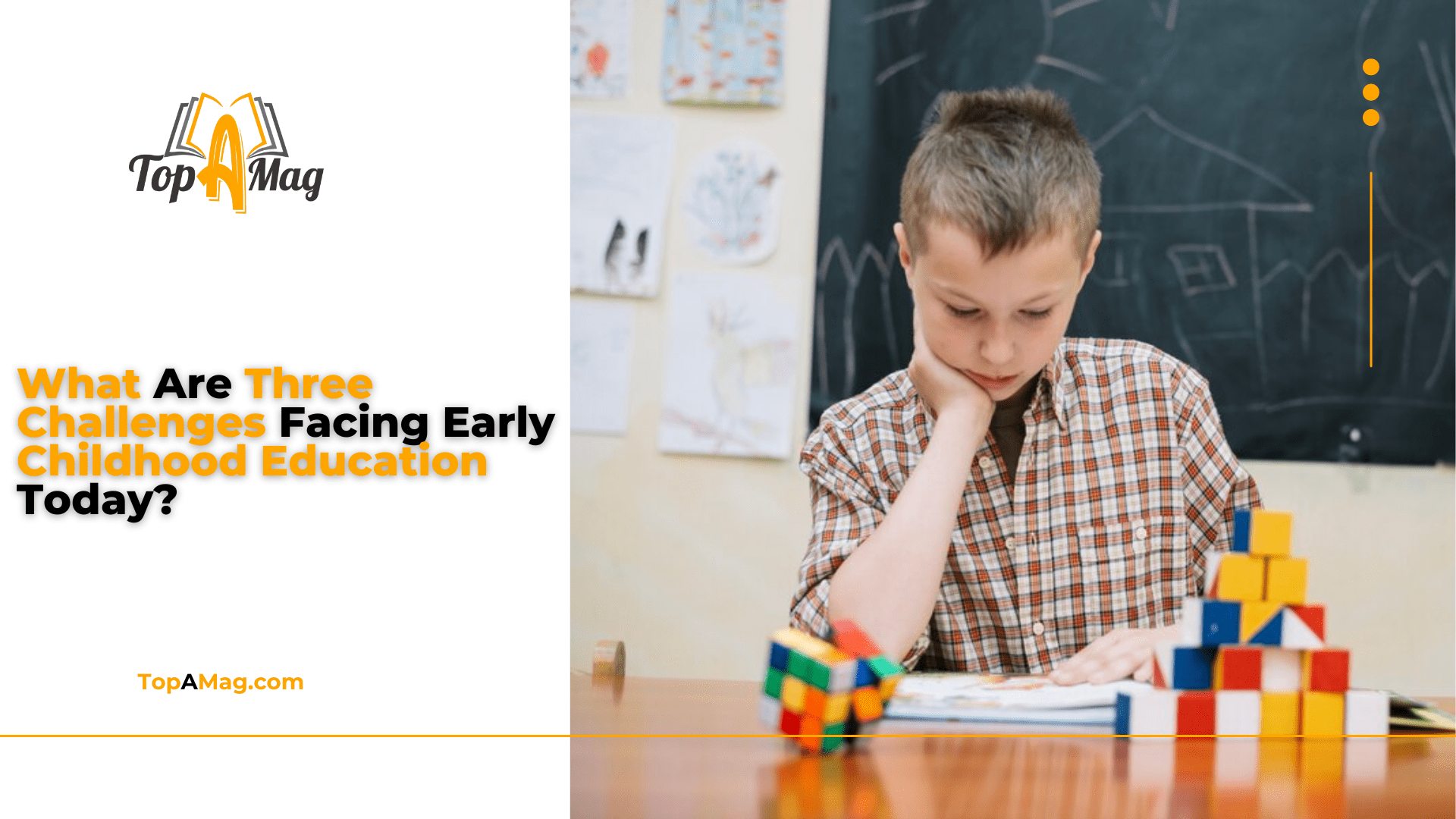Early childhood education is a cornerstone of societal development, laying the foundation for lifelong learning and growth. However, this critical phase in a child’s life is not without its hurdles. Early childhood educators, parents, and policymakers face numerous challenges that can impact the quality and accessibility of education for young children. Let’s delve into three significant challenges in early childhood education today.
Key Takeaways
- Access to quality early childhood education is hindered by socioeconomic, geographical, and cultural barriers.
- Effective teacher preparation and ongoing professional development are crucial for early childhood educators.
- Balancing academic and play-based learning is essential for the holistic development of young children.
- Parental involvement and understanding of educational approaches play a significant role in a child’s early learning experience.
- Addressing these challenges requires a collaborative effort from educators, policymakers, parents, and communities.
1. Access to Quality Early Childhood Education
Socioeconomic Barriers
One of the primary challenges in early childhood education is ensuring that all children, regardless of their socioeconomic status, have access to high-quality education. Families from lower-income backgrounds often struggle to afford quality early childhood programs, leading to disparities in educational outcomes. Consequently, these disparities can have long-lasting effects on a child’s future learning and development.

Geographical Disparities
In addition to socioeconomic barriers, geographical disparities play a significant role. Rural and remote areas frequently lack adequate early childhood education facilities, resulting in limited options for parents. This lack of access can hinder a child’s early developmental progress. Therefore, addressing geographical disparities is crucial for ensuring equitable education opportunities.
Cultural and Linguistic Differences
Children from diverse cultural and linguistic backgrounds often face additional challenges in accessing quality early childhood education. Educators must be equipped to address these differences, ensuring that all children receive an inclusive and supportive learning environment. This includes implementing Early Childhood Education practices and resources to cater to the needs of speaking confidence. Hence, fostering an inclusive environment is essential for holistic child development.
2. Teacher Preparation and Professional Development
Inadequate Training Programs
Early childhood educators are the backbone of the education system, yet many face challenges related to inadequate training and professional development opportunities. Effective teacher preparation programs are essential for equipping educators with the skills and knowledge needed to support young children’s learning and development. Without adequate training, educators may struggle to meet the diverse needs of their students.
Ongoing Professional Development
Continual professional development is crucial for educators to stay updated with the latest early childhood education methodologies and practices. Unfortunately, many educators lack access to affordable and relevant professional development opportunities, which can impact their effectiveness in the classroom. Therefore, investing in ongoing professional development is vital for maintaining high educational standards.
Teacher Retention
Teacher retention is another significant issue in early childhood education. High turnover rates among educators can disrupt the continuity of care and education for young children. Ensuring competitive salaries, supportive working conditions, and opportunities for career advancement are vital to retaining qualified and passionate early childhood educators. Consequently, addressing retention issues is key to providing stable and consistent education for young learners.
3. Balancing Academic and Play-Based Learning in Early Childhood Education
Pressure to Achieve Academic Milestones
The increasing emphasis on academic achievement in early childhood education has led to a shift away from play-based learning. While academic skills are important, play-based learning is equally crucial for the holistic development of young children. It fosters creativity, social skills, and problem-solving abilities. Therefore, balancing academic and play-based learning is essential for comprehensive child development.
Curriculum Design
Designing a balanced curriculum that incorporates both academic and play-based learning can be challenging. Educators need to create a learning environment that encourages exploration, discovery, and hands-on activities while also meeting academic standards. This requires a nuanced understanding of child development and pedagogical strategies. Hence, thoughtful curriculum design is necessary for effective early childhood education.

Parental Expectations
Parents often have high expectations for their children’s academic success, which can sometimes conflict with the principles of play-based learning. Educators must work closely with parents to communicate the benefits of a balanced approach, ensuring that children receive a well-rounded education that supports their overall growth and development. Therefore, fostering strong parent-educator relationships is crucial for aligning educational goals.
Frequently Asked Questions (FAQs)
1. Why is access to quality early childhood education important?
Access to quality early childhood education is crucial because it lays the foundation for a child’s future learning and development. It promotes cognitive, social, and emotional growth, preparing children for success in school and beyond.
2. What are the main barriers to accessing quality early childhood education?
The main barriers include socioeconomic disparities, geographical limitations, and cultural and linguistic differences. These factors can limit the availability and affordability of high-quality early childhood programs.
3. How can teacher preparation programs be improved?
Teacher preparation programs can be improved by providing comprehensive training that covers child development, effective teaching strategies, and classroom management. Additionally, offering ongoing professional development opportunities can help educators stay current with best practices.
4. Why is play-based learning important in early childhood education?
Play-based learning is important because it supports children’s cognitive, social, and emotional development. It encourages creativity, problem-solving, and social interaction, all of which are essential for holistic growth.
5. How can parents support a balanced approach to early childhood education?
Parents can support a balanced approach by understanding the importance of both academic and play-based learning. Communicating with educators and being involved in their child’s education can help ensure a well-rounded learning experience.
Conclusion
Addressing the challenges facing early childhood education requires a multifaceted approach that involves educators, policymakers, parents, and communities. By focusing on improving access to quality education, enhancing teacher preparation and professional development, and balancing academic and play-based learning, we can create a supportive and enriching environment for young children. Investing in early childhood education is investing in the future, and overcoming these challenges is essential for the well-being and success of the next generation.

